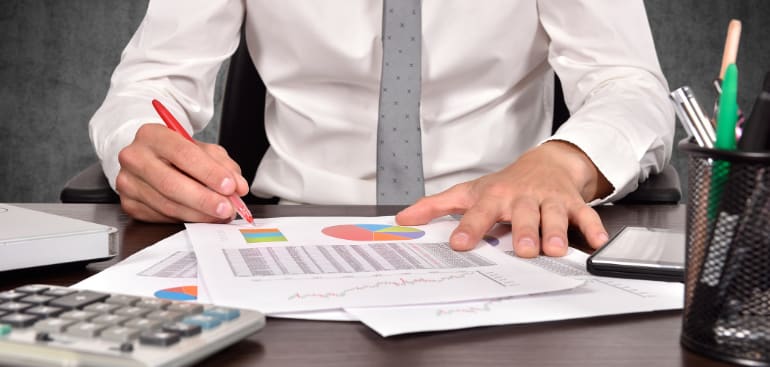According to the Association of Certified Fraud Examiners’ 2022 Report to the Nations, 5% of revenue, or approximately $4.7 trillion, is lost globally to fraud each year. As financial misdeeds proliferate across the globe and investigations are launched, forensic accountants play an increasingly important role in uncovering the truth behind such misdeeds. Which leads one to question: How does forensic accounting feature in an investigation and what skills do forensic accountants possess in order to navigate the complexities of an investigation?
By definition, “forensic” means suitable for use in Court and it follows that forensic accounting provides an accounting analysis suitable to be used in legal proceedings. Forensic accountants utilise accounting, auditing, and investigative skills to examine the finances of an individual or business. They are trained to look beyond the numbers and deal with the business reality of a situation.
As part of an investigation, a forensic accountant must know how to collect evidence of a financial crime, interview third-party witnesses and testify as an expert witness in Court. These responsibilities set the forensic accountant apart from a typical accountant.
Conducting an investigation
When companies suspect financial misconduct, the key objective of the investigation sought is always to work out what has happened in a swift and reliable manner.
More often than not, a financial misdeed does not exist in a vacuum – it requires a transaction and a transaction requires accounting. Forensic accountants, by going through accounting records and supporting documents with a fine tooth comb, allow companies to delve deeper into the alleged misconduct and can play a vital role in the execution and focus of investigations.
Forensic accountants, being numerically savvy and well versed with transaction accounting, are best placed to guide the information flow of an investigation. By tracing a transaction all the way to journal entries and seeking the appropriate supporting documents, forensic accountants can ensure the completeness of information to be included for review. After preliminary information has been received, they are able to advice on further information sources that should be requested, why they should be analysed and how this should be done.
As part of the investigation, forensic accountants are often required to conduct investigative interviews with subjects. Forensic accountants use their interview skills to elicit critical information or evidence from subjects. With their accounting knowledge and investigative skills, they are able to interrogate further to gain insights into the case.
These days, technology plays a big part in the discovery of key information during investigations. In the face of voluminous data to be examined, a forensic accountant first selects the data to review, whether in transactional or email format. By deploying digital analytical tools such as key word searches, they are able to extract relevant evidence to understand what has happened. When digital forensic solutions are deployed, the efficiency of investigations is enhanced considerably.

Beyond investigations
It is often perceived by the general public that forensic accountants are engaged to perform investigation only when fraud occurs. However this is not true as with the unique skillsets of forensic accountants, they are regularly retained by lawyers, insurers, creditors and companies to assist in investigation and/or quantification of economic damages.
Beyond financial crime, forensic accountants’ expertise are relied upon in the following varied situations:
- Dispute resolution: Forensic accountants are engaged as experts on issues relating to quantification of economic damages, which involves calculating economic losses or profits.
- Insurance claims: Forensic accountants assist insurers/policyholders in quantifying the damages of each claim. By using a combination of historical data, current conditions and future predictions, forensic accountants assist to provide an insured loss estimate.
- Family law: Forensic accountants are appointed by lawyers in matrimonial disputes/divorce proceedings as an expert in relation to asset tracing, asset identification and valuation of matrimonial assets. They play a vital role in the distribution of assets which often require them to trace, locate and value assets.
Such assignments involve a written report and oftentimes forensic accountants may be required to deliver expert witness testimony which serves as a fundamental piece of evidence submitted to court.
The skills that a forensic accountant demonstrates during a financial dispute or investigation is meant to complement the legal team. By having a forensic accountant involved, the parties involved develop a better understanding of the transactions under review and are able to build the narrative behind the numbers.


